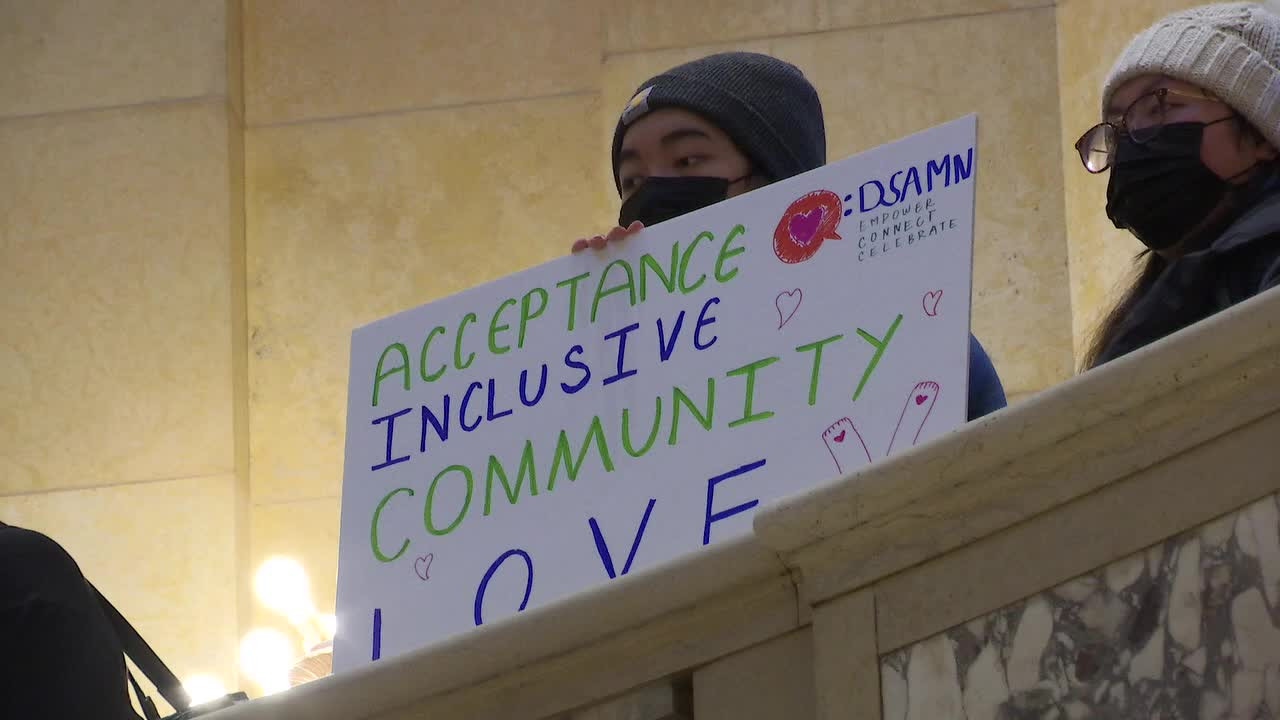Disability advocates rally at Minnesota Capitol for rate increases
[anvplayer video=”5162656″ station=”998122″]
As Minnesota lawmakers figure out what to do with the state’s massive budget surplus, people with disabilities and their advocates and allies made the case to spend some of that money on disability services.
A rally held at the state Capitol on Tuesday drew hundreds of people to the rotunda for Disability Advocacy Day.
Among the issues discussed was the need for reimbursement rate increases for the direct care workforce. Organizations that care for people with disabilities say there are nearly 53,000 job openings for direct support professionals and personal care attendants. These workers typically provide in-home support to people who received state-waivered services.
As 5 INVESTIGATES first reported last year, disability services in Minnesota are at a tipping point. Provider organizations are struggling to hire and keep workers, many of whom work in group home settings. The shortages have left people with disabilities without support and sometimes without a stable place to live.
Related stories:
- As group homes in Minnesota struggle to find workers, families forced to provide complex care for loved ones with disabilities
- From group home to senior living. Staffing crisis in Minnesota’s disability services forces aging parents into desperate situations
To hire more workers, advocates are asking legislators for increases in reimbursement rates to raise wages for direct care workers. They also want a portion of the surplus to fund programs that would help recruit new workers to the profession.
Jodi Harpstead, who serves as commissioner of the Department of Human Services, supports those policies and the increases in Gov. Tim Walz’s budget.

Someone holds a sign at the disability advocacy rally at the Minnesota Capitol on Feb. 14, 2023. (KSTP-TV)
“We have the chance this session with the surplus to make lasting investments in the programs and services that we know help Minnesotans with disabilities,” she told the crowd during the rally.
But the proposed amounts in the governor’s budget are not enough, said Senator John Hoffman, DFL-Champlin. Hoffman chairs the Senate Hhuman Services Committee.
“These are really basic services that our people with disabilities and our elderly need,” he said during an interview Tuesday. “$1.258 billion of that surplus actually belongs over in Health and Human Services. That’s been my argument from the beginning.”
Hoffman helped negotiate a funding package last session that failed to get to the governor’s desk. He said he’s not concerned about that this year, with democratic control of both the House and Senate.
“The only thing is going to be the competition against everybody else who wants money,” Hoffman said.